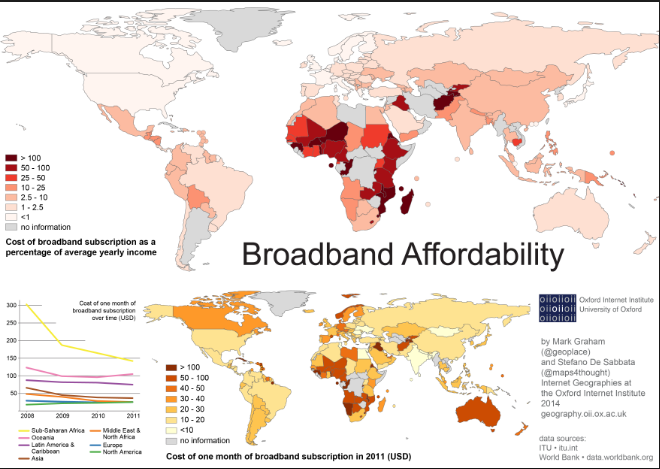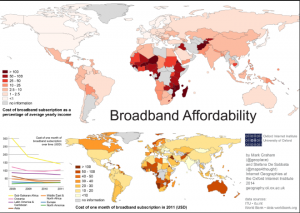Modern International Affairs analysis is often putting forth the perspective that increased access to technology will always benefit populations. This is true, but why? A 2011 Mckinsey Global Institute Report “Internet Matters: The Net’s Sweeping Impact on Growth, Jobs, and Prosperity” found that in the countries studied (mature economies) the internet accounted for 10% of GDP growth over the past 15 years. Now, internet connectivity has exploded since 2011, and there are a multitude of innovative programs designed to bring this technology abroad. Despite this rapid growth and innovation, challenges to connectivity remain. A 2015 report by UNESCO and the UN International Telegraph Union (ITU) found that 57% of the world’s population remains without access to internet connectivity, and the economic opportunity it presents.
The United Nations 2030 Agenda is designed to address these challenges, but how exactly will we implement global programs that do so? The World Economic Forum has published in April of 2016 a “Framework for Accelerating Internet Access and Adoption” and outlines the positive steps taken by governments like Hong Kong, South Korea, Columbia, Senegal, Chile, and Paraguay to increase internet growth in their countries. The report makes important note of the value of domestic regulatory policy, and how governments can ease entry barriers for broadband connectivity. This will likewise also decrease the price of the technology. Public- private partnership is key, as is technological experimentation. A unique innovation to compensate for investing in infrastructure for remote countries is offering services that complement the internet, and regulating them. This helps render industries that were otherwise unprofitable worthy of investment. If we are to increase the accessibility of internet we need to take actions to lower its cost for those disconnected.
The internet is also a powerful force for strengthening governments and citizen participation in governance. The World Bank Internet Accessibility Report 2016 illuminates this reasoning in chapter 3, though the report does make note that the value of citizen participation to policy makers is often contingent on the strength of the countries institutions.Online activity and accessibility is not an automatic answer for economic development or strengthening governments. That being said, with concerted efforts the internet can be a sustainable equalizing tool for the globe.



